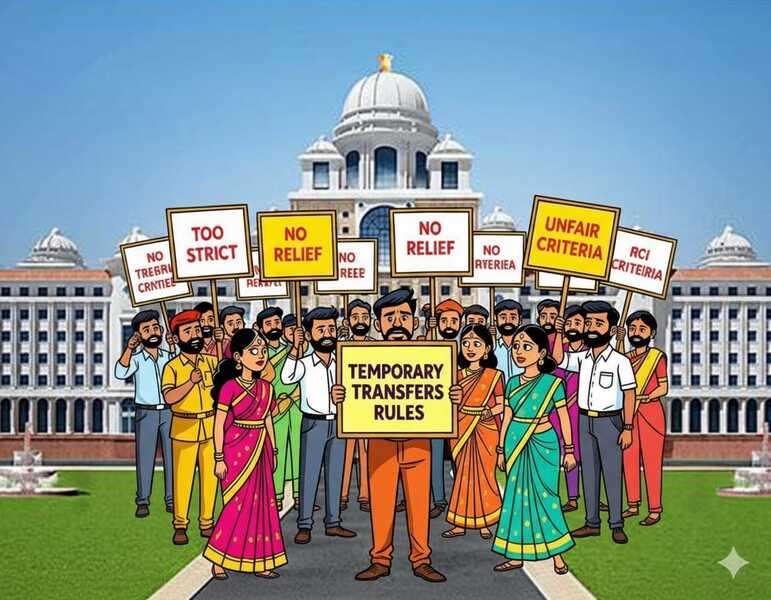Article Today, Hyderabad:
Government employees in Telangana have expressed discontent over the fresh guidelines on temporary transfers and deputations. The orders, issued on the basis of the Cabinet Sub-Committee’s recommendations, appear to bring disappointment rather than relief. Employee unions argue that stringent eligibility criteria, time limits, and the absence of financial benefits are creating unrest among the workforce.
Eligibility Norms Restrict Access
The Government Order states that only those serving in the same cadre as on January 6, 2021, will qualify for temporary transfers. This provision has excluded a large number of employees. Those who had secured postings through mutual or spouse transfers, those allotted districts under G.O. 317, employees facing disciplinary action, and those who have been promoted have all been declared ineligible. Union leaders say these conditions prevent genuine cases from availing the scheme.
Relief Capped at Three Years
The government has limited the tenure of such transfers to three years. Earlier, temporary transfers were permitted for two years with the possibility of an extension by one year. Now, once the three-year period ends, employees must return to their parent cadre without exception. Unions argue that this measure offers only short-term relief. They add that employees may again be forced to serve away from their native districts, creating family and personal difficulties.
No Financial Benefit Attached
The order makes it clear that temporary transfers will not carry any financial benefit. Employees will not be eligible for travel allowance or daily allowance. According to unions, this adds to the financial burden of employees who may need to travel and maintain dual establishments while serving away from home.
Discretionary Powers Questioned
The process vests discretion in senior officials. The orders can be issued only by the Special Chief Secretaries, Principal Secretaries, or Secretaries of the respective departments, with the concurrence of the Finance Department. However, employee unions point out that the guidelines lack clarity on how transfers should be considered. They fear that the system may depend heavily on individual decisions of officials, leaving scope for arbitrariness.
Unions Seek Transparency
Unions emphasise that the stated aim of the guidelines was to ease employee hardships. Instead, they argue, the provisions have diluted expectations. They demand a more transparent and equitable process that balances administrative requirements with employee welfare. For now, employees are waiting to see how fairly the rules will be applied in practice.



